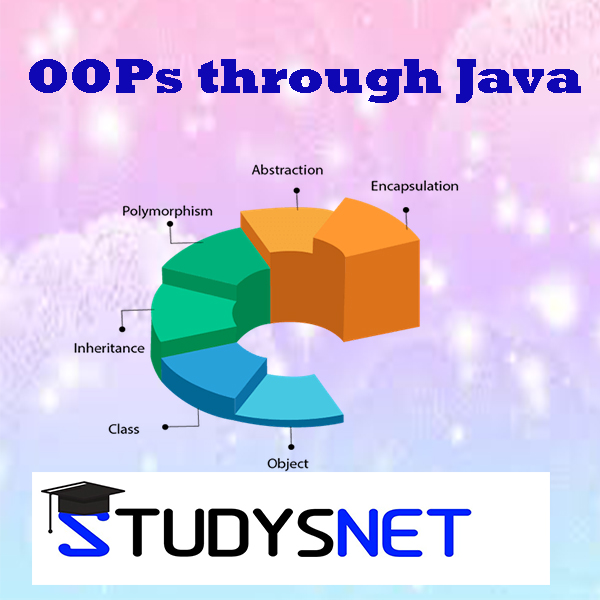OOPs through Java free videos and free material uploaded by Ramanjaneyulu K .
OBJECTIVES:
• Understanding the OOP’s concepts, classes and objects, threads, files, applets, swings and act.
• This course introduces computer programming using the JAVA programming language with objectoriented programming principles.
• Emphasis is placed on event-driven programming methods, including creating and manipulating objects, classes, and using Java for network level programming and middleware development
UNIT-I:
Introduction to OOP, procedural programming language and object oriented language, principles of OOP, applications of OOP, history of java, java features, JVM, program structure. Variables, primitive data types, identifiers, literals, operators, expressions, precedence rules and associativity, primitive type conversion and casting, flow of control.
UNIT-II:
Classes and objects, class declaration, creating objects, methods, constructors and constructor overloading, garbage collector, importance of static keyword and examples, this keyword, arrays, command line arguments, nested classes.
UNIT-III:
Inheritance, types of inheritance, super keyword, final keyword, overriding and abstract class. Interfaces, creating the packages, using packages, importance of CLASSPATH and java.lang package. Exception handling, importance of try, catch, throw, throws and finally block, user-defined exceptions, Assertions.
UNIT-IV:
Multithreading: introduction, thread life cycle, creation of threads, thread priorities, thread synchronization, communication between threads. Reading data from files and writing data to files, random access file,
UNIT-V:
Applet class, Applet structure, Applet life cycle, sample Applet programs. Event handling: event delegation model, sources of event, Event Listeners, adapter classes, inner classes.
UNIT-VI:
AWT: introduction, components and containers, Button, Label, Checkbox, Radio Buttons, List Boxes, Choice Boxes, Container class, Layouts, Menu and Scrollbar.
OUTCOMES:
• Understand Java programming concepts and utilize Java Graphical User Interface in Program writing.
• Write, compile, execute and troubleshoot Java programming for networking concepts.
• Build Java Application for distributed environment.
• Design and Develop multi-tier applications.
- Notes
- Notes
- Notes
- Notes
- Notes
- Notes

- 0 Reviews
- 23 Students
- 73 Courses

Write a public review